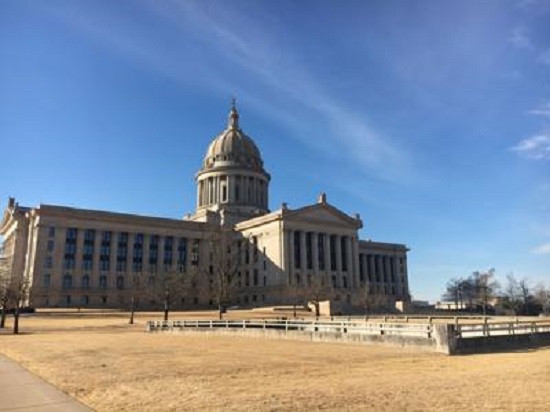OKLAHOMA CITY, OK – The Oklahoma House of Representatives spent two hours on Thursday debating a resolution that has sparked heated discussions over religious freedom and the separation of church and state. The resolution, which proclaims “Christ is King,” passed along party lines, with every Republican lawmaker present voting in favor and every Democrat voting against.
While the measure does not carry the force of law, it has drawn criticism for its perceived endorsement of a specific religion by a government body. The resolution was co-authored by State Senator Shane Jett, R-Shawnee, who defended the move as a symbolic recognition of Christianity’s historical and cultural role in Oklahoma.
“It’s just a very warm, inspirational way to honor Christ and to recognize His role and the foundation of the nation and the important role that He plays in the hearts of Oklahomans all over,” Jett said.
Democrats, however, voiced strong objections, warning that the resolution blurs the constitutional line between church and state and fails to represent the state’s religious diversity.
Representative Andy Fugate, D-Oklahoma City, pointed to Oklahoma’s complex and often painful history involving religious institutions, particularly in relation to Indigenous communities.
“Are you aware of the religious schools that were taxpayer funded in the territorial days of Oklahoma and the atrocities that were perpetrated upon Indian children, tribal children in the name of Jesus?” Fugate asked during the debate.
Though the resolution is non-binding and has no direct policy implications, it has reignited a broader debate about religious expression in government spaces. Supporters argue the resolution is a reflection of the beliefs held by many Oklahomans, while opponents contend it risks alienating those of different faiths or none at all.
The Oklahoma Constitution explicitly outlines the separation of church and state, a fact critics say makes the passage of the resolution particularly troubling.
No legal challenges have yet been filed, but civil liberties groups have begun to weigh in, with some suggesting the resolution could open the door to further entanglements between religion and government in the state.
For now, the resolution stands as a symbolic gesture—but one that has clearly drawn a stark line between lawmakers on either side of the aisle.

